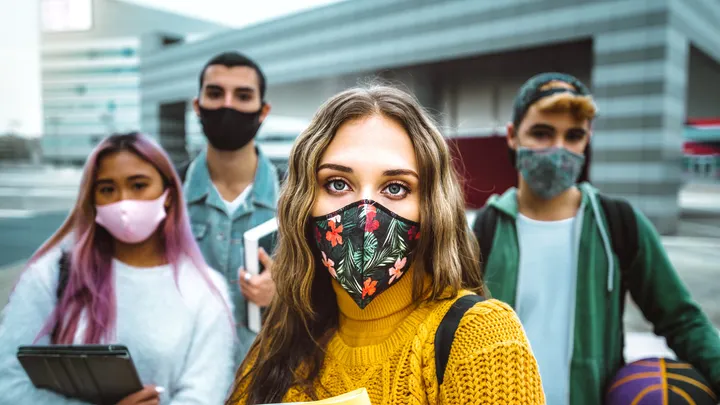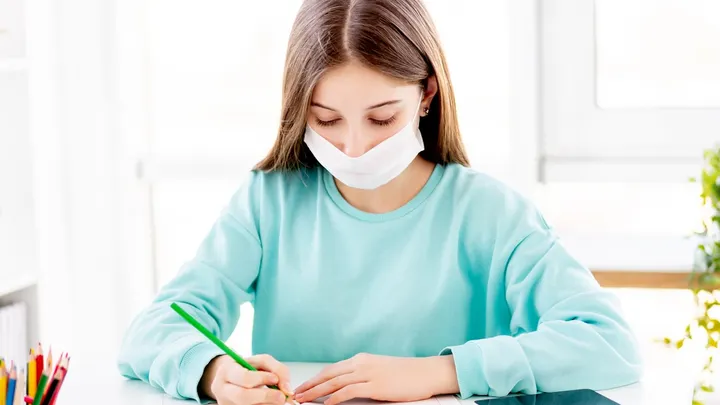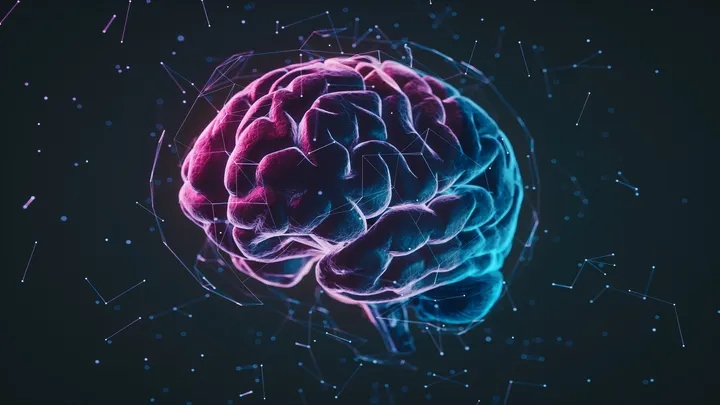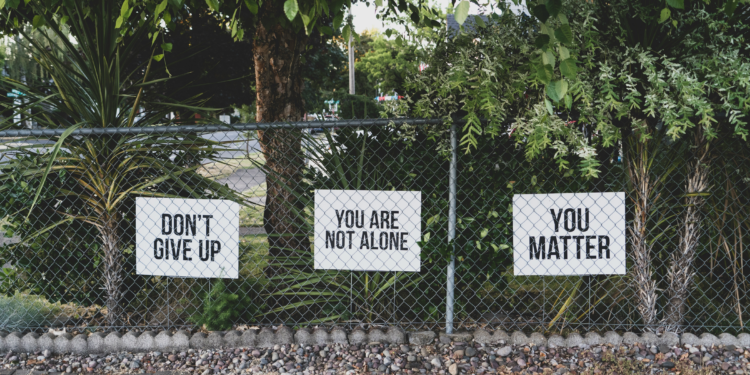The Worrying Effects of COVID 19 Restrictions on Teen’s Brain Growth Learning About the Study: Key Discoveries on Teenagers’ Brain Development
New research has shown big effects that COVID-19 restrictions have had on teenagers’ brains develop. The study included a range of participants, aged 13 to 18, from different backgrounds. Over two years, researchers wanted to see how long periods of being alone & broken schooling influenced how young people’s minds and emotions worked.
Using special brain scans, the study focused on important parts of the brain that deal with emotions, decisions, & socializing. The results showed clear changes in both the brain’s structure and how it worked during the pandemic. In particular, areas like the prefrontal cortex (which helps with executive functions) & the amygdala (which is key for processing emotions) were affected quite a bit. Interestingly, they saw that gray matter volume actually shrank in these areas. This suggests a possible impact on overall brain growth for teenagers.
These findings highlight that as teens faced problems during the pandemic—like social distancing & fewer chances to hang out—their brains changed. Many reported feeling more anxious, depressed, or having trouble concentrating. Plus, emotional toughness seemed weaker than before the pandemic, hinting at a link between less social contact and mental health issues.
In essence, this study points out how crucial it is to understand that while public health measures are important for stopping COVID-19, they’ve also changed the way a whole generation thinks and feels. We need to rethink how we support teenagers who are dealing with these big changes in their brain development.

The pandemic’s negative effects on kids’ and teens’ mental health have been shown in numerous studies. (iStock)
Psychological Effects: The Emotional Strain on Teens
COVID-19 has brought serious restrictions that have changed teens’ daily lives. As a result, many face various psychological challenges that are concerning and need attention. Studies show that being isolated due to lockdowns has led to more anxiety and depression among teens. Missing regular socializing—so important for emotional growth—has made feelings of loneliness even worse.
When things are normal, teenagers lean heavily on friends for emotional support. Yet, since schools switched to online learning & social activities dropped off, many feel cut off and lonely. This disconnection not only affects their mental health but can be damaging to their brain too. The reduced social interactions can slow down learning necessary skills for coping & emotional toughness during these key years.
Also, the stress from uncertainties about the pandemic has added extra pressure. Worries about getting sick or family safety & adjusting to online classes increase this stress. Research shows constant stress can harm teens’ brains by affecting how they think and manage emotions—that’s why it’s crucial we find ways to help them during this tough time.
As we gather more evidence about how COVID-19 limits affect mental health in teens, it’s essential we find ways to lessen the negative impacts. Creating an environment where teens feel safe sharing their feelings & learning coping skills is key for their well-being.

The researchers found that the pandemic caused teenage brains to age faster than normal. (iStock)
The Importance of Socializing: A Developmental Viewpoint
Social connections are hugely important for healthy development during teenage years! Adolescence is a vital time marked by major brain growth & forming social skills and emotions. Studies show having friends is necessary for developing cognitive skills & emotional understanding—skills that help shape young people into successful adults. In these important years, teens learn empathy, communication & conflict resolution mainly through in-person hangouts with friends.
However, due to the COVID-19 pandemic restrictions, socializing took a hit—it deeply affected teen development! As schools went online & face-to-face gatherings got limited, many teens felt isolated just when they needed friends most. Research reveals that missing out on real-life interactions has stopped them from building social skills leading to growing feelings of loneliness & anxiety. This disruption can harm their brain; as teens grow up, friendships build neural connections and help with managing emotions—which are so important for future relationships.
Theories about how youth develop highlight peer connections’ role in shaping self-image and identity during these years. According to theories like Erikson’s stages of development, adolescents seek identity through relationships with others—but pandemic restrictions removed many chances for those important interactions! This may stunt emotional growth & affect future ability for forming healthy friendships. Plus, isolation can worsen issues like depression and anxiety making it harder for them to grow cognitively & emotionally too!
Realizing how limiting social interaction due to lockdowns impacts young people’s brains underscores why friendships matter so much during childhood! It’s crucial we address this lost connection as we aim to assist our next generation in growing up better.

On average, the young females’ brains aged 4.2 years faster than normal, and male brains were accelerated by 1.4 years. (iStock)
Looking Ahead: Helping Teens After the Pandemic
The COVID-19 pandemic has really shaken up teen growth by affecting their social lives & mental health—and even their brain development! Moving forward means it’s vital for parents, teachers & mental health experts to use smart strategies that help fix these impacts and build a healthier world for our teens. One main idea? Encourage socializing! By creating chances for teens to engage with others again—like community events—they can regain those waning social skills from before.
Also super important is mental health support! Parents should keep communication open with their kids so sharing feelings becomes easier—things like family talks or journaling could help express those emotions or tackle stress more effectively! Schools should step up too by integrating mental health resources or workshops helping students manage well-being.
To make spaces where teenagers grow better together? Promoting activities sparks creativity & critical thinking! Schools might look at projects allowing students to collaborate more while exploring interests or puzzle-solving together! Offering resources such as online workshops about brain health could lend ongoing guidance to families navigating life after lockdowns too!
With these strategies combined? We can build an environment nurturing teenagers while working against what troubles COVID-19 threw at us! Encouraging friendships again while focusing on mental health and offering growth opportunities will help shepherd our youth through this next stage together!(Let’s do this!)


























